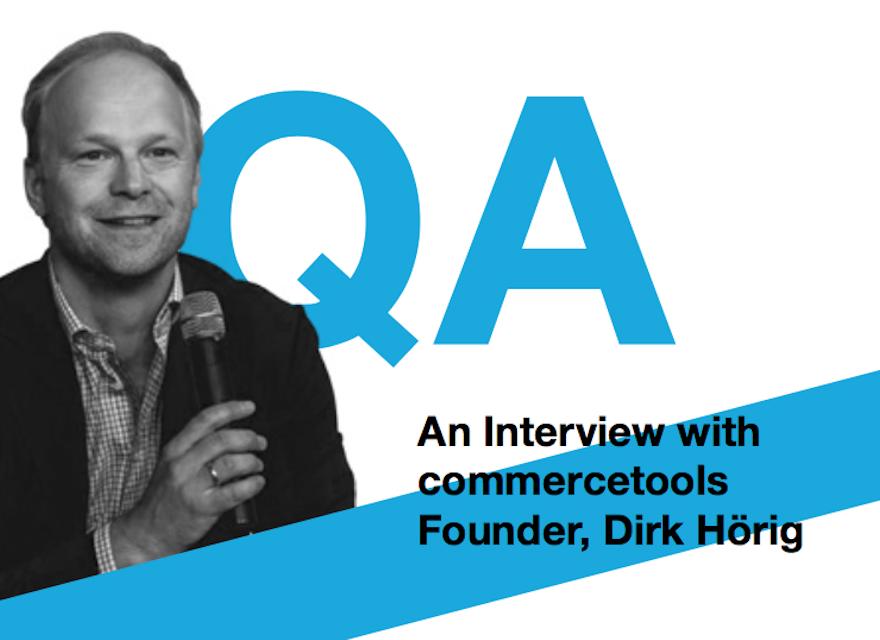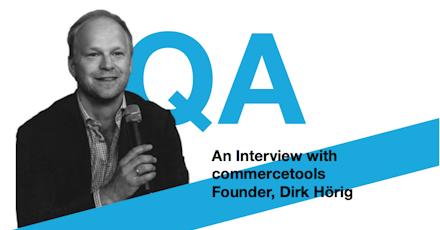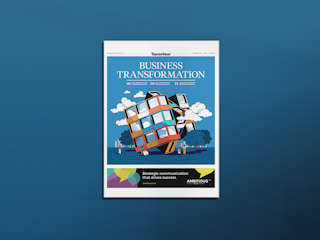Valtech: Dirk, commercetools would like to become the leading provider for the post-web era. What exactly do you mean by this?
Dirk Hörig: Commerce is in an environment in which two thirds of the customers already access merchandisers via mobile channels. This is no longer a niche segment! But on average, only one-third of sales in Germany are actually achieved in this way today. There is clearly a need for action in this regard. The point is no longer to build a mobile-optimized webshop, but rather to develop a mobile concept and already link in other channels.
V: Does that mean you advise retailers to skip the mobile webshop?
DH: At this point, mobile is the major subject because it is the most relevant channel, but other touchpoints are continually growing: Voice is very much on the way up, meaning Alexa and Google Home. According to a survey in the United States, 20% of consumers indicate that they have already placed an order using Alexa or other voice services. Another 30% – this puts us at 50% – would like to do so in the next few months. This does not mean that every order will come via voice in the future, but with this development, we have already moved well past the conventional webshop. So people need to consider what the digital strategy for their own enterprise is in online commerce. And the technology is a segment of this that we serve with our commercetools platform.
V: Agility is considered the new mantra for changing corporate processes. What is your understanding of this in specific terms?
DH: Agility means that I can try out things. If they don’t work, I discard them and go on to the next thing. But that’s only possible if the associated risk is manageable. And this is where technology is a tool to facilitate developing quickly and agilely without having to delve deeply into programming languages.
V: The commercetools blog says that APIs are the steam engine of the digital revolution. Why are APIs so important?
DH: Without an API, a voice assistant cannot interact with my products and my prices. Without an API, no car can order any product anywhere. Without an API, I cannot construct an augmented shopping scenario in a HoloLens, building a product virtually. It is the DNA with which these things operate. That is why we refer to the API as the steam engine, because it is the fundamental technology for enabling new digital commerce models in new channels – and doing so with high speed and scalability. All this doesn’t work without APIs. Actually, an API should be a commodity, thus a consumer product. This is how we see it and this is why we built a platform in which everything is available as an API.
V: Can you briefly summarize what the most important functionalities of the commercetools platform are, which ultimately are available via APIs?
DH: First of all, there is the whole issue of a product catalogue in a modern commerce environment. This includes designing an intelligent price structure, using it for pricing and making the process dynamic. And secondly, we focused on the topics of shopping carts and order management and being able to expand them with complete flexibility.
V: You said in an interview with Fashion United that the goal of every merchandiser should be to reach customers everywhere in a personalized way and in the right context so as to offer them the right product. How far away are merchandisers in Germany from being able to do that?
DH: I believe they are only at the very beginning. In general, commerce focuses heavily on other challenges and not so much on the topic of a “different approach to customers.” The point is not that I personalize everything everywhere, but rather that I find out the target groups and segments for which that pays off and how I can find suitable solutions in this specific environment. Some of them may not work. Merchandisers have to experiment, because otherwise they will not achieve a competitive advantage. There is still room for improvement.
Merchandisers have to experiment, because otherwise they cannot create a competitive advantage
V: What should merchandisers focus on especially for 2019?
DH: Inspiration and user experience. From my own shopping experience, that is something I miss more and more. There’s a lot that can be done in this regard and we must learn more from companies like Instagram, Pinterest, etc. There is an enormous potential here that has so far been ignored by commerce. And someone who takes an interest in the topic will have a good competitive advantage.







